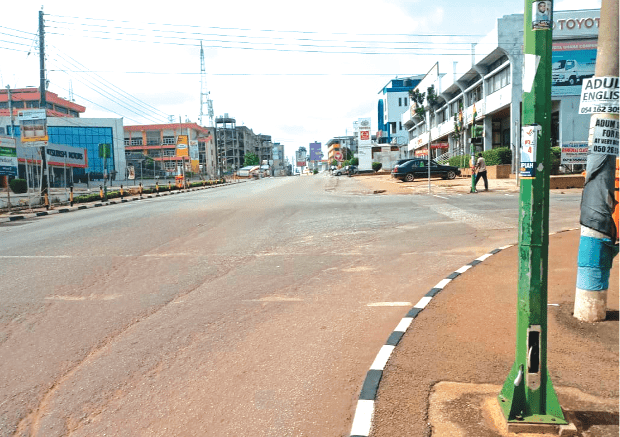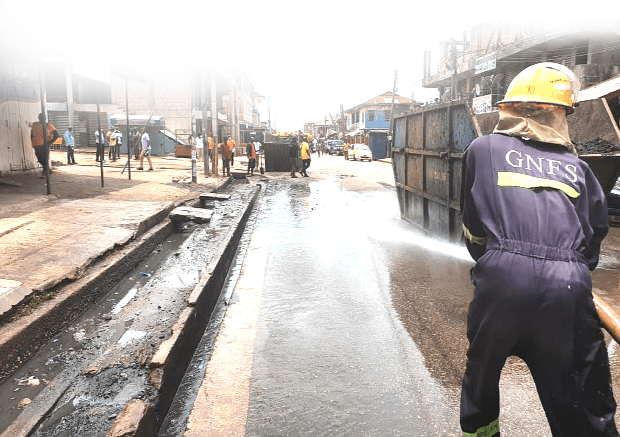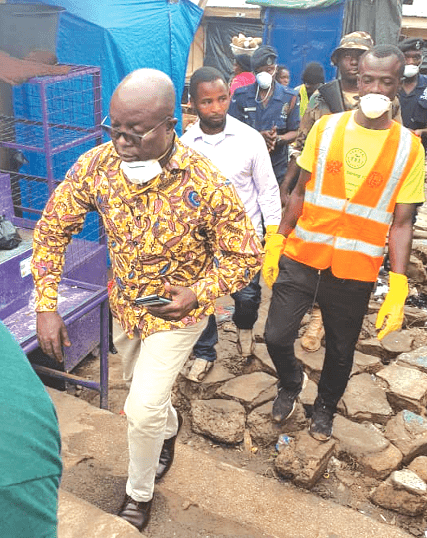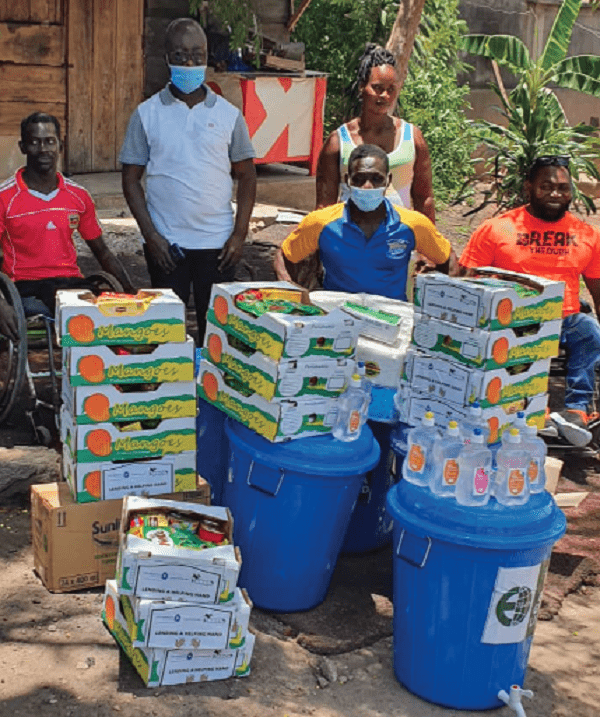
How Kumasi is responding to COVID-19
For once, I saw Kumasi - the boisterous traditional city of more than two million people - virtually on its knees as the coronavirus disease (COVID-19) bites hard.
The virus has rendered the famous Garden City almost lifeless with social and economic life grounded.
Advertisement
Many residents are at their wits’ end trying to figure out how to overcome the deadly virus so as to go back to their businesses.
Some recalcitrant residents, unable to accommodate the difficulties, have tried to break the rules set by the government and the local authorities to check the spread of the virus but the Kumasi Metropolitan Assembly (KMA) has stood up strongly to the test.
Working with the other six municipal assemblies in the city as well as other state institutions and interest groups, the KMA has weathered the storm to a large extent and some sanity appears to have been brought into the system.
So, as I moved through parts of the city observing how the partial lockdown measures were being carried out, it dawned on me that the authorities deserved a pat on the back.
The Metropolitan Chief Executive (MCE), Mr Osei Assibey Antwi, believes that the modest achievement made with regard to compliance with the restriction of movement has been due to the effective co-ordination and direction provided by the Regional Security Council (REGSEC) and the collaboration between the KMA and the six other municipal assemblies in Kumasi.
City response

A fire officer cleaning the Asafo suburb in Kumasi
In preparation for the Kumasi City’s COVID-19 response, the MCE, in late February, 2020, constituted and inaugurated the Public Health Emergency Committee to complement the work of the Metro Health Committee.
There were also stakeholder engagements between the assembly and bodies, including the REGSEC, regional health directorate, transport unions,traders’ unions and market associations , businesses within the central business district, and other social groupings and associations including the clergy.
Pre-lockdown actions
Before the partial lockdown of the Greater Kumasi area and its contiguous districts, the KMA undertook some initiatives that were aimed at getting the people to appreciate the enormity of COVID-19 and how to protect themselves from the virus.
The actions included visiting health facilities within the metropolis to assess their readiness in responding to the COVID-19 pandemic and subsequently giving technical and logistical support to address some of the challenges facing them in the delivery of their services; visiting high risk areas like the 23 markets and lorry terminals; educating and training of transport/vehicle operators and their loading terminal inhabitants on general environmental hygiene as well as COVID-19 preventive measures, and general
clean-up activities including the desilting of gutters and drains of filth within the CBD and the markets.
Other activities were mounting public educational campaigns towards the prevention of COVID-19 using the traditional print and electronic media, the Information Service
Department (ISD) and social media platforms, and education through physical presence with various interest groups, and receiving donations and co-ordinating the distribution of same to various institutions, groups and individuals toward the prevention of COVID-19 and its spread.
Post-lockdown

Mr Osei Assibey Antwi (in glasses), the KMA boss, touring a disinfection site
Following the announcement of the restriction of movement by President Nana Addo Dankwa Akufo-Addo on March,27, 2020 , the metro response has been carried out on three main fronts.
These are the setting up of a monitoring team for the monitoring and evaluation of the implementation of the lockdown.The monitoring team made up of members of the Metro Security Council (METSEC) has since been embarking on routine monitoring.
The Regional Security Council (RESEC) has provided security personnel to mount checks, road blocks and sentry duties in the CBD, markets, lorry terminals and entry/exit points in the Kumasi metropolis.
Secondly, there are follow-up visits to the metro health facilities to assess their enhanced readiness to handle possible increase in number of COVID-19 infections.
The other response is coming from government interventions. Under this, there has been distribution of food through the Ministry of Gender, Children and Social Protection; which was done by the Metro office of NADMO under the guidance of the Metro Disaster committee.
The Rebecca Foundation has also distributed 2,000 packs of dry food to the needy, under the direction of the Metro Directorate for Social Welfare and Community Development.
Besides, the Ministry of Sanitation and Water Resources has led the cleaning and disinfestation of Alabar, Bantama, Race Course, Dr. Mensah and other markets. The Ghana National Fire Service was involved in massive desilting and washing during the above exercise.
In addition, there has been a KMA – led distribution of Local Government and Rural Development COVID-19 logistics like Veronica buckets and stands, liquid soap, tissue paper, and hand sanitiser.
The Ministry also led an exercise to disinfect all the 23 markets within the Kumasi Metropolis while KMA also disinfected the CBD at Adum and saw to the distribution of COVID-19 logistics provided by assembly and other donors.
There has also been regular educational campaigns through the media.

Some PWDs with some of the items presented to them
Challenges
One of the challenges confronting the fight against COVID-19 in Kumasi is how to enforce physical distancing
“This is by far the biggest challenge that has been experienced in our markets and lorry terminals. This led to the closure and reopening of the Dr Mensah market, Central market and Bantama market. Currently a rotational system has been agreed with the above-named leadership to assist in preventing overcrowding at the markets,” Mr Osei Assibey said.
Other challenges include loitering by individuals and groups in town with no tangible reasons, frequent request by non-exempt businesses to be given permission to operate; huge demand for COVID-19 prevention logistics and materials; huge numbers seeking to access the Bantama market, Dr Mensah market, Asafo market and Central market within the Kumasi city centre; thereby drawing large crowds and making physical distancing impossible, and persons without valid permit seeking to leave and/or enter the locked down jurisdiction.
Recommendations
Among other things, the KMA wants prospective patrons of the large CBD markets to use satellite markets in their local areas, while traders in the markets have been asked to respect a rotational agreement reached with the assembly, or risk closure.
Citizens are also encouraged to stay home and not loiter while communities are advised to stop activities like playing football, draught, ludo, oware and the opening and operation of drinking bars.
Groups and individual donors are also encouraged to support the government’s effort by donating cash and COVID-19 logistics to aid the fight against the disease.
Individuals without valid permits have been asked to desist from attempting to enter and/or leave the locked down jurisdiction. High co-operation with the security team has been demanded of the citizenry.



